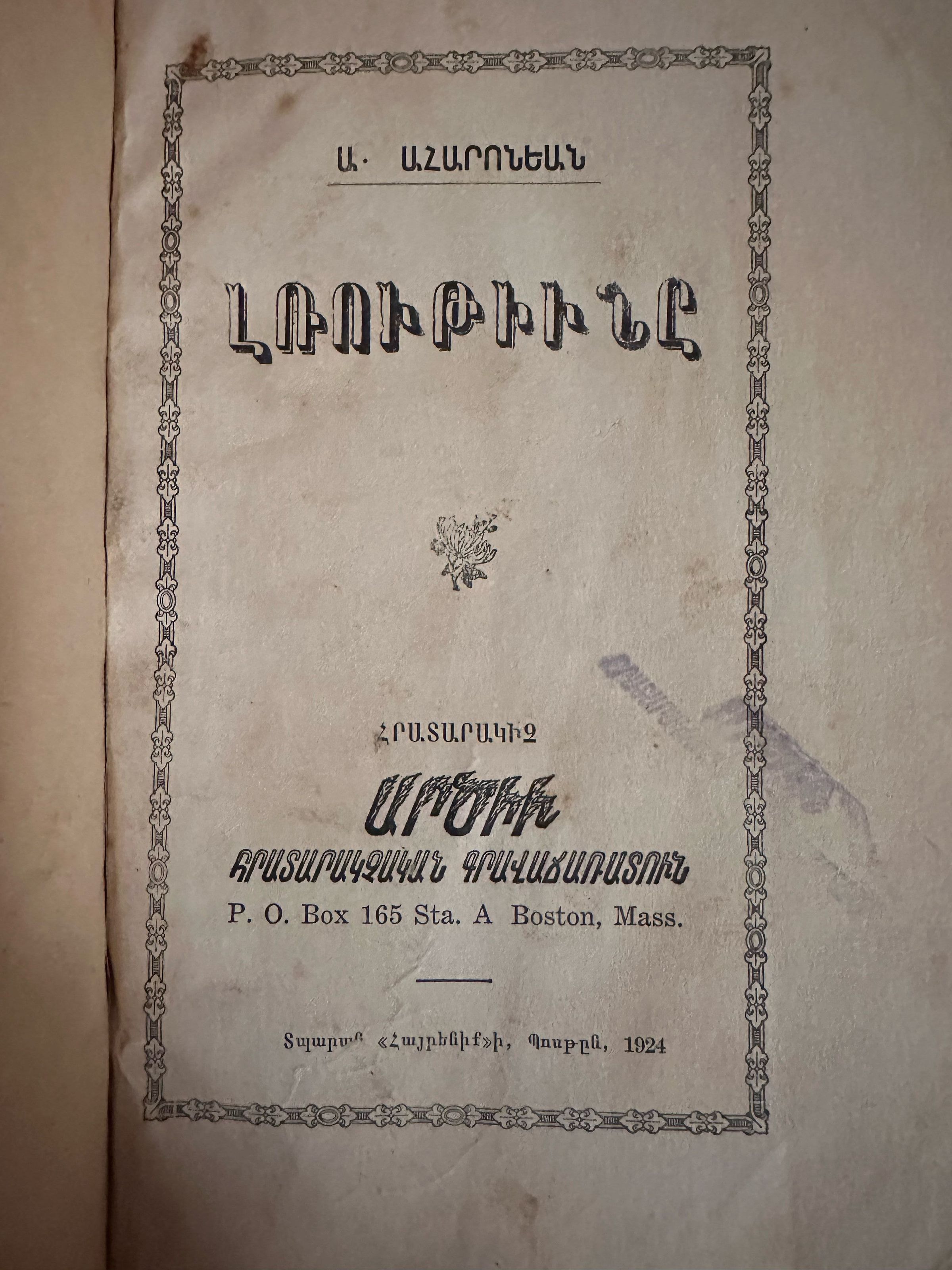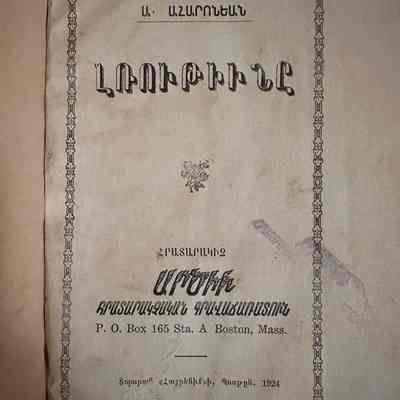Lrutiune (Avetis Aharonian, 1924)
Name/Title
Lrutiune (Avetis Aharonian, 1924)Secondary Title
Լռութիւնը. Lrutiune. The Silence.Description
Aharonian's poetic prose, Silence, is more than a novel or a story—it’s a work of philosophy and psychological analysis, depicting an intense clash between two opposing ideas. First published in 1904 in the Murj (Hammer) magazine, founded by Avetik Arasakian in Tbilisi in 1889, it was later released as a standalone book in 1909, receiving numerous reprints over the years. Aharonian's work caused a stir at the time, as it diverged from the prevailing literary stereotypes. Many contemporary writers viewed Silence as “un-Armenian,” believing it to be worthy of classification within world literature rather than just Armenian literature. During that era, Silence faced criticism from writers such as Teryan and Charents, while Aharonian also had defenders like Hakob Oshakan. In his work Eastern Armenian Figures, pages 101-102, Oshakan wrote, “Like the best works of high art, the successful pieces in his novels are free from the immediate influences of environment, time, and even ethnicity.” Silence presents a philosophical confrontation between an artist and Margarita. The artist loves and reveres silence, while Margarita dreads it, insisting that “terrible things happen in silence.” In the novel, Margarita openly resents silence, having her own persuasive reasons for doing so. In a conversation with the artist friend, she says, “I hate that silence; it lies heavily upon the world like a monster, choking it. Individuals, societies, and nations perish under the weight of that silence.” Meanwhile, the artist friend had come to Margarita's village to “forget in profound solitude, to live freely and dream within the embrace of vast and beautiful nature.” Aharonian’s novel is philosophical in the sense that both the artist’s reasons for loving silence and Margarita’s reasons for hating it are valid. At the novel’s end, Aharonian doesn’t draw a conclusion on the nature of silence; rather, he creates an atmosphere that leads readers to think deeply and eventually choose their own side—to love or hate silence. Isn't silence one of the best symbols of peace? Isn’t silence golden? Isn’t it in silence that God speaks to man, that great ideas become clearer and ripen? But why, then, do the greatest evils in the world—murder, theft, and robbery—happen in silence? Why do the most bitter tears often emerge from our eyes in silence? Why do people commit suicide in silence, and why do feelings of solitude and abandonment manifest in silence?Category
Books

